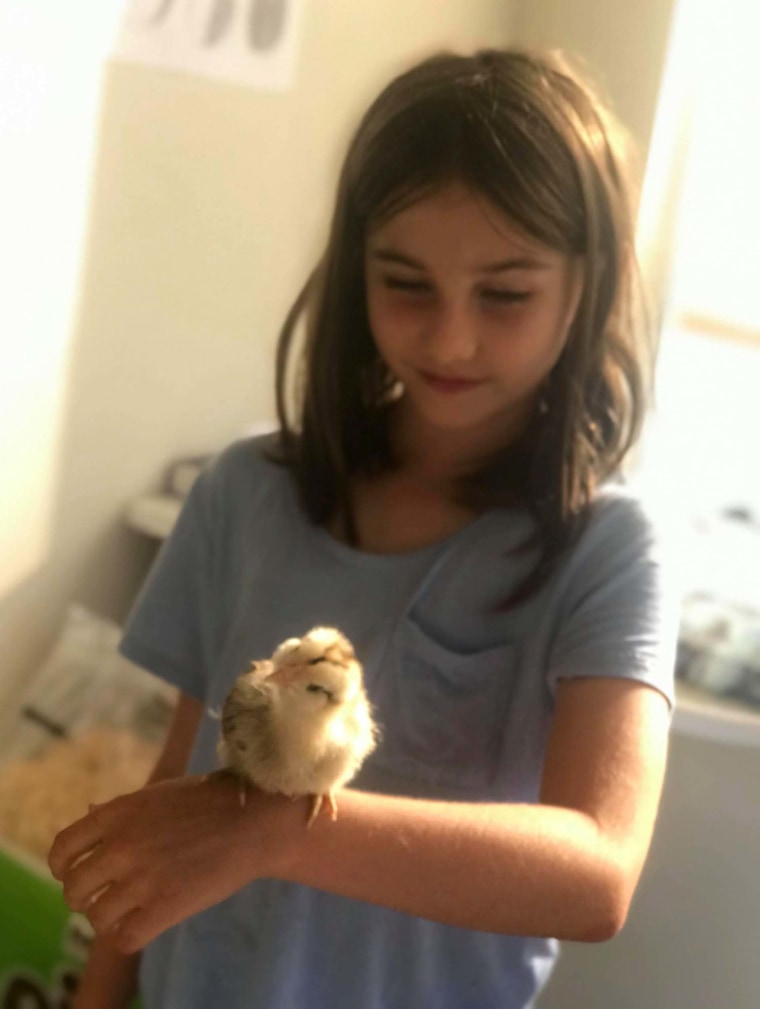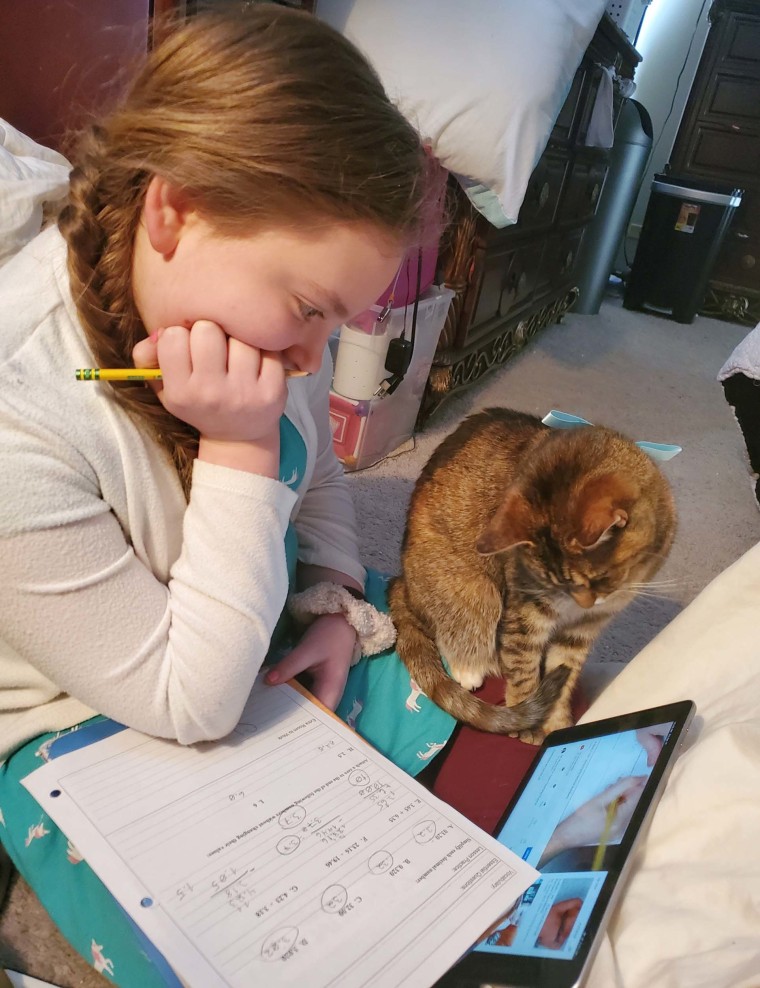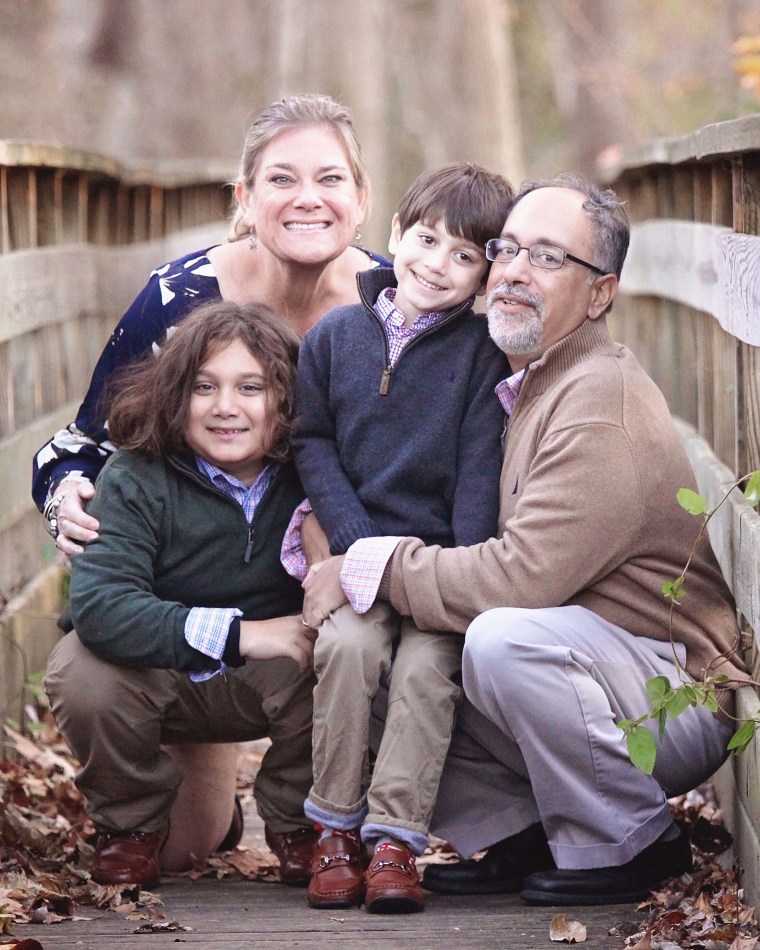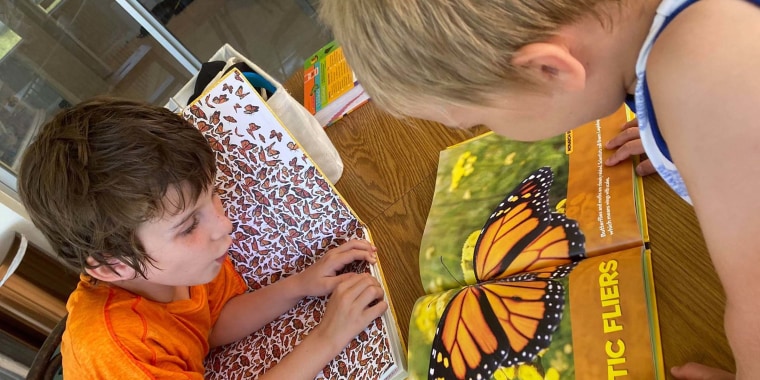Rachel Ellsworth never thought she’d home school her children. Even when she started distance learning with 10-year-old Brigit and 7-year-old Joseph, she loathed it. She just wanted them to make it to summer.
But as COVID-19 cases kept climbing in the United States — and especially in Florida where she lives — the medical intensive care nurse felt she could not send her children back to school.
“It became pretty obvious to me that this was not going to be better by August,” the 36-year-old from Indian Harbor Beach told TODAY Parents. “When the governor said that he was opening schools again I just decided, nope.”

A recent survey of 1,000 parents from Varsity Tutors found a whopping 47% of parents are considering home schooling for the 2020 school year. Normally only 3% of families home school in a given year, the organization said.
“The phrase can ‘are considering’ does some heavy lifting. It doesn't mean 47% will (home school) but the fact that they are really considering it speaks to their fears and one is will school be safe?” Brian Galvin, chief academic officer for Varsity Tutors, told TODAY Parents. “One of the things we've been hearing from a lot of parents is these hybrid models that schools are proposing put a lot of strain on the parent.”
The survey also found that almost half, 48%, might not send their children to school even if they are open and 43% don’t believe in-person fall classes will even happen. Yet, 61% worry that their children faced the COVID slide and lost skills with virtual learning.
Home school provides safety, consistency
Celeste Lawson-Schlitz’s daughter Julianna Joy attends school in Naperville, Illinois. They haven’t heard what the school plans for next year and it is small so Lawson-Schlitz believes class size will be manageable and kids can stay six feet apart. But, there still are unknowns, such as whether children can actually keep their masks on for a full school day or stay away from one another during gym. There’s just too much uncertainty.
“They've already said what happens if one person has COVID-19? Well, the schools to close down for two weeks,” Lawson-Schlitz, 50, told TODAY Parents. “Then we're just back to where we were again we started in March.”

Julianna Joy spends a lot of time with her grandparents and the family doesn’t want to risk their health.
“If she goes back to school full time or even part time with people that aren't quarantining, she could be exposing her elderly grandparents,” Lawson-Schlitz said. “We're just not sure how things are going to work.”
Of course, home schooling is not an option for many families, because of finances, logistics or both.
"I fully embraced the fact that I am privileged enough to have this choice and feel like at this point in my life it makes sense for me to have the kids at home," Ellsworth said. "And if that's two less kids in the classroom to make room for learning for others, that's an added bonus."
Though there are many free resources, homeschool curriculums and add-ons can run upwards of $300-$600 per child a year.
Programs like Outschool and others offer low-priced Zoom classes that can supplement curriculums. When all extracurricular activities were canceled, Lawson-Schlitz signed Julianna Joy up for Outschool classes to keep her daughter occupied in the afternoons. It also gave her a chance to interact with other kids her age that helps her cope with social isolation.
“She misses the human interaction. She misses that a lot,” Lawson-Schlitz said. “You have to find some kind of outlet.”
Marnie Benjamin also uses Outschool with her children to supplement their distance learning last year. Her son, Aaron, loved taking an oceans class every Monday. Using those courses to bolster the traditional coursework kept her children motivated. When it became clear that school would not return to normal this year, Benjamin jumped at the chance to home school.
“I feel comfortable either remote schooling or home schooling because I know that there are resources to lean on,” the 48-year-old from Marlton, New Jersey, told TODAY Parents.

While she believes their school district did a good job transitioning to virtual school it seems too risky for her children to attend. Benjamin and her husband have diabetes and her children have epilepsy. She worries about a seizure sending them to the emergency room in the middle of a COVID-19 surge. But she also enjoyed working with Aaron, 9, and Max, 6.
“Having them home actually gave me the opportunity to almost be a one-on-one,” she said. “I was able to guide them and I kept saying to myself, ‘This is working.' They both did very well in school and they both had great supports in school but I felt like I was even able to help them even more.”
And, she can provide something that school cannot: Consistency.
“Why don’t we have consistency? If we know everybody is going home, if the virus is going to blow up why don’t we allow the students to begin (at home) from day one?" Benjamin said.
Ellsworth wonders the same thing.
“Nothing really gave me the confidence that they were going to be a consistent method of learning for my child unless I took responsibility for it,” she said. "That is in no way a reflection of the teachers or the district."

Even though she originally disliked distance learning, Ellsworth has embraced home schooling. To build excitement, everyone took part in picking a science course for the year: Brigit selected botany, Joseph earth energy and she picked marine biology.
“One of the parts about home schooling that is the coolest is to do a marine biology class and then go to the beach and or go to the river or and try to go find examples of it and find ways to make it exciting for them,” she said. “I'm choosing home schooling because I believe it's the best option for my kids.”